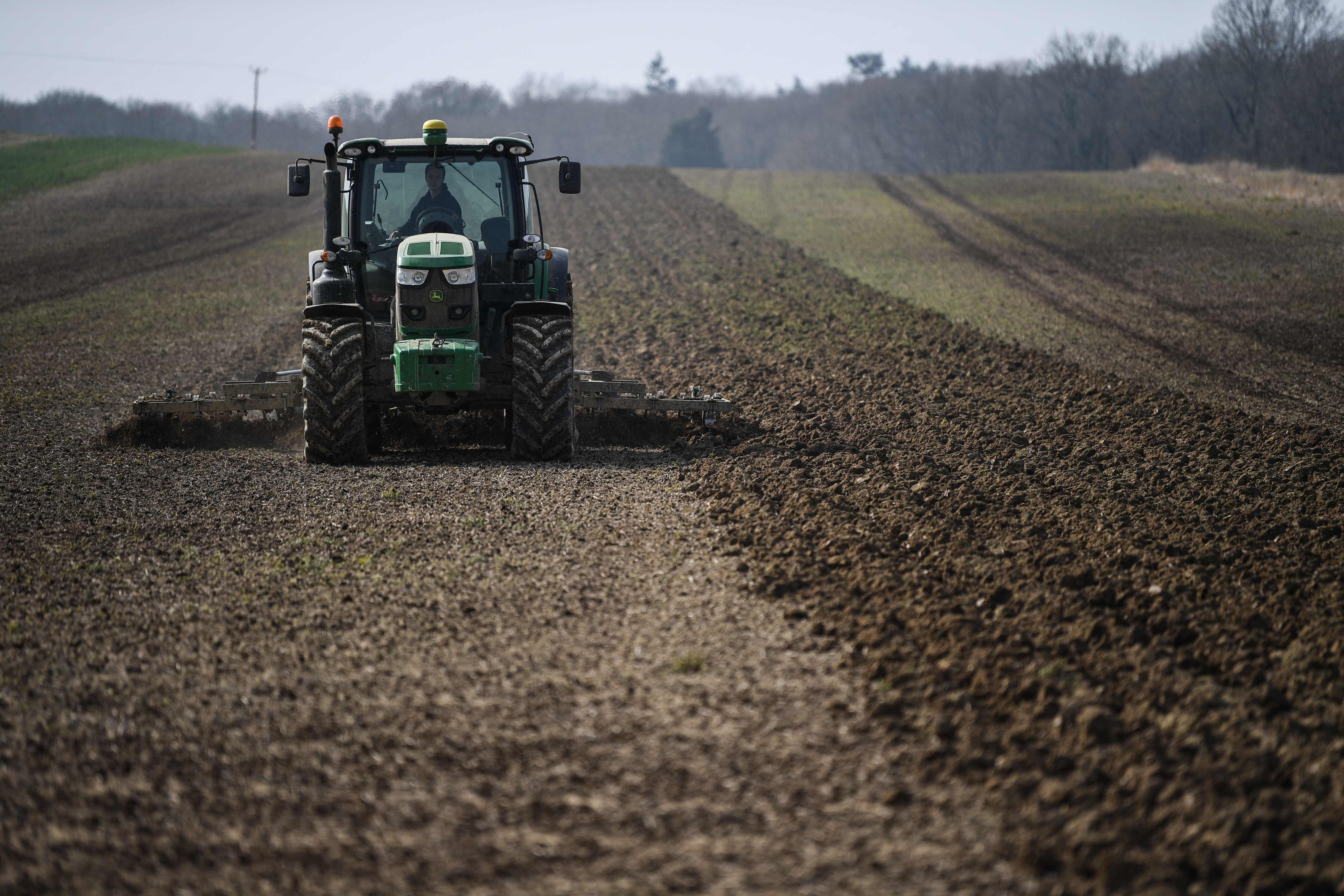UK ‘sleepwalking’ towards food shortages, farmers warn
Rising costs of fuel, fertiliser and feed are impacting on farmers

Your support helps us to tell the story
From reproductive rights to climate change to Big Tech, The Independent is on the ground when the story is developing. Whether it's investigating the financials of Elon Musk's pro-Trump PAC or producing our latest documentary, 'The A Word', which shines a light on the American women fighting for reproductive rights, we know how important it is to parse out the facts from the messaging.
At such a critical moment in US history, we need reporters on the ground. Your donation allows us to keep sending journalists to speak to both sides of the story.
The Independent is trusted by Americans across the entire political spectrum. And unlike many other quality news outlets, we choose not to lock Americans out of our reporting and analysis with paywalls. We believe quality journalism should be available to everyone, paid for by those who can afford it.
Your support makes all the difference.Farmers have warned the UK is “sleepwalking into food shortages” because of the rising costs of fuel, fertiliser and feed.
British farms are reducing production to deal with the increased prices, according to reports.
One farmer in Snowdonia, north Wales, told GB News: “We’re sleepwalking into food shortages and that’s a fact.”
Gareth Wyn Jones added: “I could take you to ten farms in the surrounding area now that are turning down their production - chicken farmers, egg producers, milk producers, even beef and lamb because feed prices are going through the roof.
“We’ve got absolutely ridiculous fertiliser prices and we can’t forget that half the food produced in this world comes from artificial fertiliser.”
Fertiliser prices broke new records last month due to global factors including reduced supplies from Russia, disruptions to the supply chain, and a Chinese export ban.
“It’s a series of events we’ve never seen before and it continues to look like it’s going to get worse than batter,” John Linville, at the US commodity trader StoneX told The Guardian.
“People thought the Russia-Ukraine war would be quick and Russia would be back out in the market and that’s not been the case,” he added.
The price of nitrogen fertiliser, which is used on wheat, vegetables and pulses, has risen from £300 per tonne to £1,000.
Mr Wyn Jones said: “We want to produce food at affordable rates for our consumers and customers and it’s not going to happen.
“It’s just ludicrous what’s going on, and it’s scary as a farmer sitting here and watching my friends talking about cutting their livestock down to half becasue they’re not going to go out and spend money on fertiliser.”
Andrew Williamson, a Shropshire farmer, said the cost of buying fertiliser has risen by 200 percent.
He told the BBC: “The issue we have now is, the cost of fertiliser has increased and will have an impact on our business decisions.
“I don’t want to be alarmist about food security and food prices, but off the back of what we’ve seen in Ukraine and energy security, we also need to start thinking about food security.”


Join our commenting forum
Join thought-provoking conversations, follow other Independent readers and see their replies
Comments